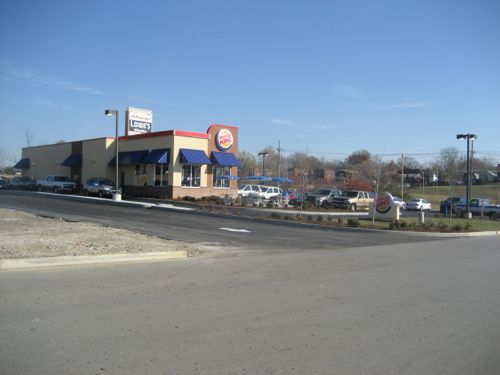Special Taxing Districts in St. Louis

Recent curiosity about special taxing districts has been a can of worms — the number of them just within the City of St. Louis is overwhelming. Plus, they’re not all alike. Some are Community Improvement Districts (CIDs) based on Missouri law, others are special business districts established by the St. Louis Board of Aldermen. Another type is transportation development districts (TDDs). Some collect sales taxes, others property taxes, possibly some collect both. Some collect money from business licenses.
These are different than Tax Increment Financing (TIF). From a 2012 Post-Dispatch story:
Local governments and school districts worried about a cash crunch have put extra scrutiny on the use of TIF, which uses future tax revenue generated by a project to help fund its construction. That can sap money from other needs down the road. CIDs and TDDs, on the other hand, don’t touch the tax base. They simply add a new tax on property owners, shoppers or both extra for an extra layer of service.
They are also popular because they’re flexible. Developers and neighborhood groups say CIDs are a way to raise money for things that cash-strapped city governments can’t afford. Many point to the Times Square Business Improvement District, created in the early 1990s by business owners to help clean up the New York City landmark, as an example of their potential. And similar examples exist in St. Louis. Like in The Grove. (Pennies add up as special taxing districts proliferate)
As an 8+ year property owner in the Downtown St. Louis Community Improvement District I’ve voted on the ongoing management — a state requirement to get approval by a percentage of registered voters. However, the accountably and transparency of these vary greatly.
In 2016 I’ll look into the differences between these districts.
— Steve Patterson
This would be self-government during a time of declining city services. The problem is, only the wealthy can afford these increased local taxes. So places in need of extra help are not able to benefit. One thought is to add a special tax in a place like St. Louis Hills and then direct those revenues to help a place in need like the Ville. The day that happens in St. Louis I will be amazed.
When that happens, you will lose the city. The white flight that happened in North city, will be replicated in South city. Then who will you tax?
^ Just the kind of response I was looking for! >:-)
This would be self-government during a time of declining revenues; any reduction in city services is a consequence. You also apparently think that taxes should only be paid by the wealthy. Everyone should pay their fair share, nobody should be getting a free ride. These taxes are localized because certain businesses are willing to pay more in taxes if they see a direct benefit, over and above what the city can afford to deliver, citywide.
Most of these taxing districts are imposed on business districts, not on residential areas. The challenge in north city is that even more businesses than families have left, so there’s little left to tax . . . and it appears that any taxes a new stadium might generate won’t be benefitting the surrounding areas. What you’re seeing, in north city, is those residents being “forced” to spend their money in other neighborhoods, in other special districts, because there are few opportunities to spend their money closer to home.
A big part of the “problem” is that many citizens, both wealthy and poor, have reached their limits on what they’re willing (and able?) to pay in taxes. Look no further than the earnings tax to see a good example of one tax that encourages both individuals and businesses to look outside the city. Look at sales taxes around 13% on some restaurant meals in certain parts of the city. Look at predatory policing in north county. Government shouldn’t always be the “answer” when it comes to delivering services or solving problems, and being a mobile society, many people will choose paying fewer, lower taxes than funding services they see will be of little or no direct benefit to themselves!
One of your most fundamental problem is “tax shopping”. In a state like California, if they raise income tax and use it for public services, everyone pays it and everyone gets the services. In Missouri, you’ve got tax shopping between Missouri and Illinois, between Missouri and Kansas, between municipalities….